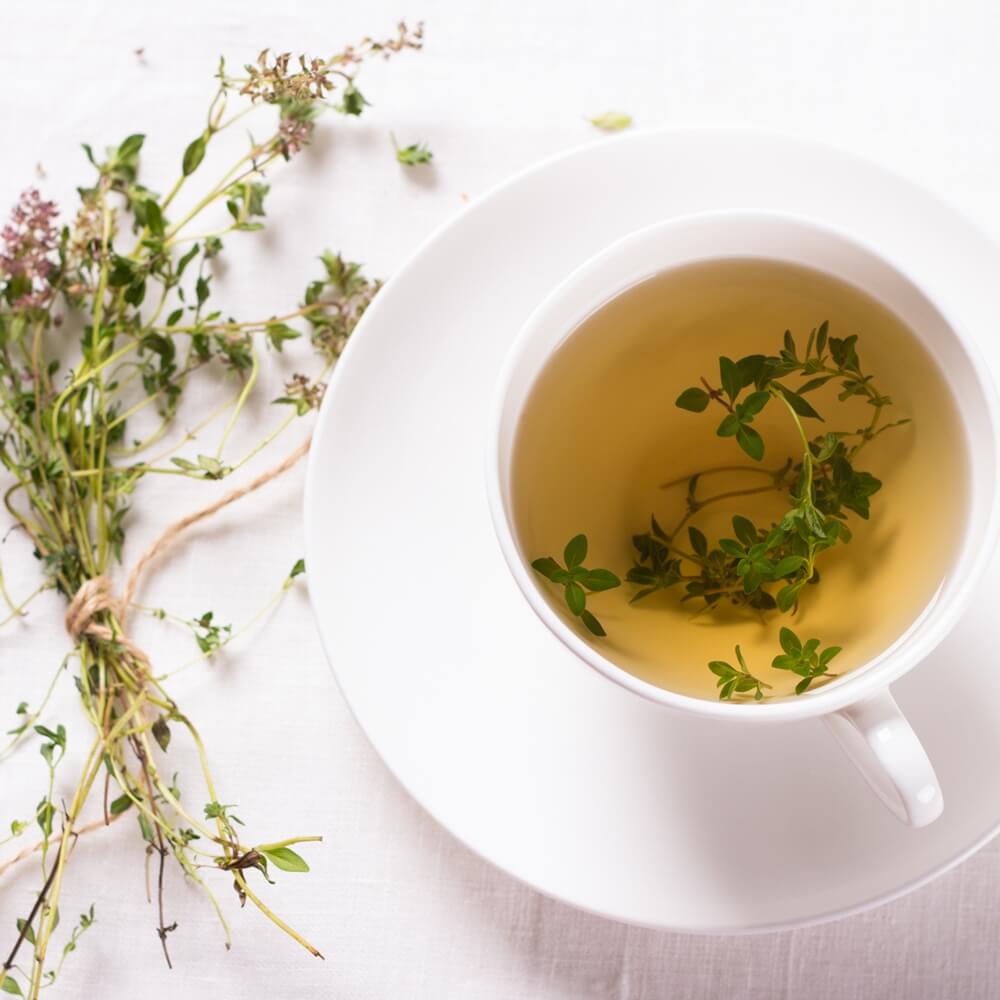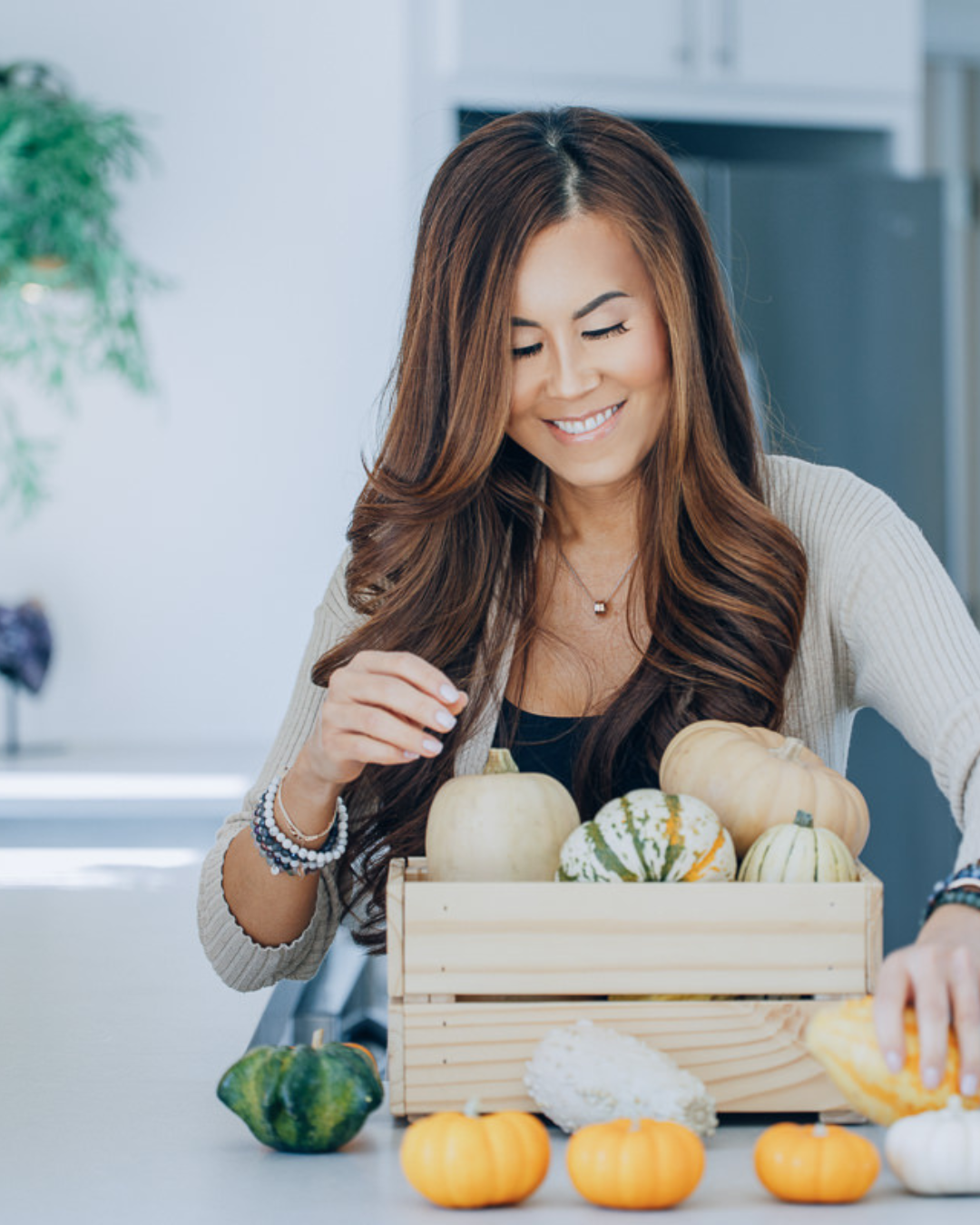“There is something in the nature of tea that leads us into a world of quiet contemplation of life.” ~ Lin Yutang
Tea was always a ritual in my house that signified gathering and comfort. Whether we were at home or on the occasion we ate out in a Chinese restaurant, tea was central to any get-together, so I always associate it with a warm, soothing feeling of home.
In fact, my association with tea as comfort is not just in drinking but also in making homemade tea.
Immune-supporting foods have become the focus of my cooking because it feels so good to know you are serving up something that is not only delicious but amazing for your health as well.
When it comes to fruits, vegetables, and healing herbs, each has its own set of benefits which is why I recommend a diverse, vitamin-rich diet to get an array of antioxidants and healing properties.
As much as I advocate for diversification in one’s diet, I have a few favorites that are non-negotiables in my life – one of them being thyme. I steep this herb with a few other top-notch ingredients to make a soothing, herbal tea. It’s something so simple, but it helps so much. Find my three-ingredient recipe, below.
How To Make My Thyme Tea
First, you’ll need the star ingredient – fresh thyme. Thyme’s immune-supporting benefits are well-researched, packed with antioxidants, flavonoids, and other healing properties. I also add a little bit of citrus, like lemon. Lemons are packed with vitamin C, which we all know plays a very key role in our immune health.
Lastly, I add some manuka honey. You may have heard some of the buzz about this amazing New Zealand honey, which contains anti-inflammatory flavonoids and has been shown to provide support to the body’s respiratory and immune systems.
Now that you have the recipe breakdown, here’s how you replicate it:
- Place 3 sprigs of fresh thyme in 1 cup of boiled water.
- Let it steam and simmer for about 10 minutes.
- Strain the mixture into a teacup.
- Then squeeze in half a lemon and stir in 1 tbsp of manuka honey.
My Homemade Ginger Tea
Ginger is a member of a plant family that includes cardamom and turmeric. The name comes from the Middle English gingivere, but this spice dates back over 3000 years to the Sanskrit word srngaveram, meaning “horn root,” based on its appearance.
Ginger can be found in everything from a zingy green juice to a kicked-up curry. And this rich, spicy root is an ancient healer. The oleoresin (i.e., oily resin) from the rhizomes (i.e., roots) of ginger contains many bioactive components. Ginger has been used for thousands of years for the treatment of numerous ailments, such as colds, nausea, arthritis, migraines, and hypertension.
Though ginger is technically a root and not an herb, I am lumping it in with my favorite immunity-boosting herbal teas because it packs a flavorful punch and is as good for you as it smells and tastes. This light and spicy blend is something I love to have in the wintertime to boost my immunity during cold and flu season. I also like a cup of ginger tea after dinner to help with digestion.
I use ginger in so many of my recipes so I like to buy it in bulk to save some for this special homemade tea.
What you will need for ginger tea:
- Fresh ginger root
- Peeled and sliced lemon
- Manuka honey
- 2 cups filtered water
Clean and peel the ginger root. Chop it into 1-2″ pieces. You will need 4 slices to make two cups.
Place the ingredients in a small saucepan on medium heat and boil. Reduce the heat and simmer for five minutes. You can let it sit a few more minutes if you want even stronger tea.
Strain the tea into mugs and top off with a thin slice of fresh lemon and a drizzle of manuka honey. Stir well and enjoy!
One of the great benefits of herbal tea and other homemade teas is hand-picking the ingredients yourself. It feels so good to practice self-care by making something so simple and yet so satisfying from scratch. And of course, it also feels great to share a cup of tea with someone special.
xo – Serena
by





